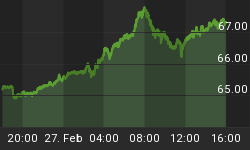
Originally posted at Sprott Money February 23, 2016
Oil once again is in the spotlight, in fact, it never really has left since the correction has begun. Oil is so deeply linked with our global economy, that it cannot and will not be ignored. The continued downturn is highlighting the fact that the global economy is weak and due for a correction. All indicators point to this.
Many financial experts and pundits believe that we have already begun the next recession, others believe that we remain in the same crisis that was papered over in 2008. I am in the camp of the latter, but in the end, to the man on the street, it is a matter of perspective.
If you have lost your job, had your wages reduced or suffered any hardships, then you will agree, that a recession is here, perhaps even a depression depending on how severely you have been impacted.
For many in Canada, they are waking up today in a full blown depression. The absolute gutting of the oil market has hit many in this country particularly hard. Unemployment in key oil provinces has skyrocketed over the past year, with no reprieve in sight.
Yet, as I have pointed out in past articles, this is not the end. The contagion is spreading, unemployment insurance will only last so long, and then what? Then we will see the true ramifications of this crash in oil prices. Simply put, those laid off will not be able to replace their high income jobs. Why you ask? Because the jobs aren't there, period.
Moody's is one such source that is now starting to point out this contagion in the Canadian economy. The next victim, according to them? The Canadian banking sector, which is going to be heavily impacted by the layoffs and crash in oil prices.
According to Moody's the Canadian banking sector is set to lose C$5.56 billion to C$12.9 billion in profits due to defaulting credit by its customers, with the two most heavily affected banks being CIBC and the Bank of Nova Scotia.
Unfortunately, as we have historically seen, the worst case scenario is typically the most likely outcome, perhaps even an underestimation. Remember, this estimate is only taking into account the current oil market and the people laid off in that space. Additional downsizing in the economy is set to come as a decrease in broad spending begins to affect other sectors of the economy, leading to further hardships.
Given the fact that the two largest sectors of the Canadian stock market are the commodities sector and banking space, then we can expect a very very bumpy ride in the future for the Canadian economy.
Things will turn around, eventually, as the oil is not going anywhere and is simply wealth in the ground, waiting to be extracted. Unfortunately, this is little relief for those currently being affected by the crash in oil prices. When the "good times" will return is anyones guess and sadly, may be long in the coming.
The views and opinions expressed in this material are those of the author as of the publication date, are subject to change and may not necessarily reflect the opinions of Sprott Money Ltd. Sprott Money does not guarantee the accuracy, completeness, timeliness and reliability of the information or any results from its use.















